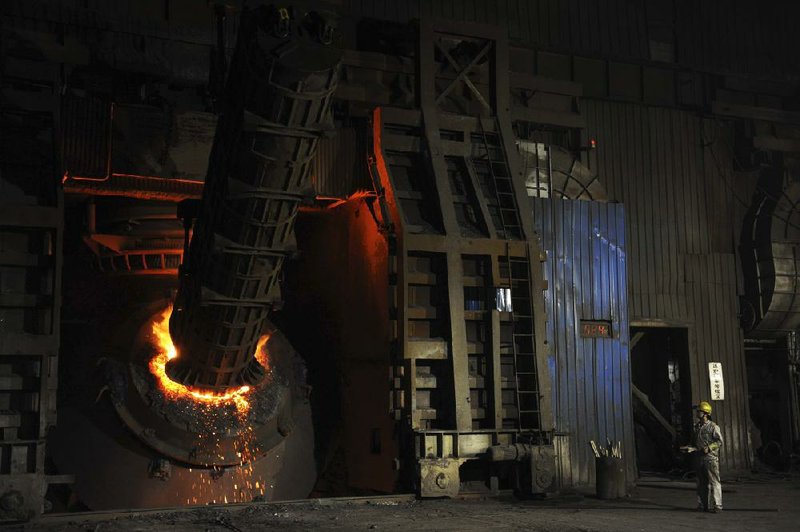BEIJING — Chinese officials are tempering expectations of another huge stimulus plan amid reports the country is green-lighting more infrastructure projects to stabilize its slowing economy.
“The Chinese government’s intention is very clear — it will not issue another large-scale stimulus plan to boost robust growth,” the official New China News Agency said in an article published Tuesday.
The statement helped drive stock markets down across Asia on Wednesday as investors sought clues as to how the world’s second-largest economy would respond to its biggest economic challenge in three years.
Weak foreign demand, a cooling real-estate market and diminished bank lending has slowed Chinese economic expansion to a pace not seen since the aftermath of the 2008 financial crisis.
Economists say the global economy can ill afford to see China, the world’s second-largest importer, skid off the rails, especially at a time when Europe appears to be heading for a deeper economic crisis.
China has already indicated it will act to stabilize growth, but it can’t afford to reproduce its 2009 strategy, which included a $586 billion stimulus and the opening of the bank lending floodgates. That led to asset bubbles and inflation that still hampers the Chinese economy today.
“The Chinese government will not use stimulus money to reach the goal of ‘stable growth’ like they did last time because it’s unsustainable,” Tuesday’s New China News Agency article said.
Speculation had grown in recent days that China would reach for a larger-than-expected stimulus.
A surge in local officials were reportedly seen at the powerful National Development and Reform Commission’s Beijing headquarters hoping to get approval and funding for new projects.
The mayor of Zhanjiang, a city in southern Guangdong province, was photographed walking out of the commission’s offices Sunday kissing approval papers for an $11 billion plan to build a steel manufacturing base.
Analysts say China is shooting for a modest policy boost, or what Standard Chartered economist Stephen Green called a “mini-me” stimulus.
China “is introducing a measured but still significant set of stimulus measures, which should begin to affect growth in August-September,” Green wrote in a research note.
Those measures appear to include infrastructure projects, such as airports, subsidies for energy-efficient household appliances and asking the private sector to invest in state-dominated industries.
China’s central bank could also reduce the amount of capital lending institutions must hold in reserve and lower benchmark interest rates to spur growth.
Some analysts lamented that China was using the same playbook to stave off a serious slowdown.
“Many government officials argued repeatedly during the past year that tolerating slow growth is critical for rebalancing the economy, improving the quality of growth and sustaining it a rapid pace,” wrote economists at Barclays. “Yet the government is already implementing a second stimulus package. Near-term growth may be well-supported now, but what about next year and the year after? These beg the more fundamental questions if whether the economy can ever graduate from the state-investment-driven stage and whether the economic transformation will ever happen.”
Business, Pages 30 on 05/31/2012
